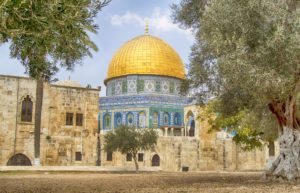
Share this Blog
The 15th of Sha'ban
The 15th of Sha'ban
The 15th of Sha’ban
Because some versions of the Tradition state that births, deaths and sustenance are decreed in the night of immunity or 15th night of Sha’ban, some of the scholars have interpreted the phrase ‘ لَيْلَةٍ مُّبَـٰرَكَةٍ’ in the current verse as referring to ‘laylat-ul-bara’ah’ or ‘the Night of Immunity’. Ibn Kathir, first of all, says this Tradition is mursal and such Tradition cannot be reliable in the presence of clear/express texts. Qadi Abu Bakr Ibn ‘Arabi asserts that no authentic Tradition relating to mid-Sha’ban is available which may show that sustenance, births and deaths are determined and decreed in that night. He further rejects the idea that there is any reliable Tradition on the merit of this night. Ruh-ul-Ma’ani, however, cites a Tradition, without a chain of transmitters, narrated by Sayyidna Ibn ‘Abbas in which he says that sustenance, life and death are determined in the mid-Sha’ban night, and in the Night of Power the decrees are handed over to the angels. If this Tradition is confirmed, then the two interpretations can be reconciled and synchronized. Otherwise, the express words of Qur’an and authentic Traditions relating to (يْلَةٍ مُّبَـٰرَكَةٍ) and (فِيهَا يُفْرَقُ) in the verse of Surah Dukhan clearly show that they refer to the ‘Night of Power’أَعُوذُ بِعَفْوِكَ مِنْ عِقَابِكَ ، و أَعُوْذُ بِرِضَاكَ مِنْ سَخَطِكَ ، وَ أَعُوْذُ بِكَ مِنْكَ ، جَلَّ وَجْهُكَ ، لَا أُحْصِيْ ثَنَاءََ عَلَيْكَ ، أنَتَ كَمَا أَثْنَيْتَ عَلٰى نَفْسِكَ
‘I seek refuge in Your Forgiveness from Your Punishment.
I seek refuge in Your Pleasure from Your Anger. I seek
refuge in You from You i.e. Your Punishment. Majestic is
Your Being. I am not able to praise You (as You are worthy
of praise). You are exactly as You have praised Yourself.’
Note
Shaykh Muftī Taqi Usmani ḥafiẓahullāh states, “Although the chain of narrators of some of these aḥādīth suffer with some minor technical defects, yet when all these aḥādīth are combined together, it becomes clear that this night has some well founded merits, and observing this night as a sacred night is not a baseless concoction as envisaged by some modern scholars who, on the basis of these minor defects, have totally rejected giving any special importance to this night. In fact, some of these aḥādīth have been held by some scholars of ḥadīth as authentic and the defects in the chain of some others have been treated by them as minor technical defects which, according to the science of ḥadīth, are curable by the variety of their ways of narration. That is why the elders of the Ummah have constantly been observing this night as a night of special merits and have been spending it in worship and prayers.”YOUR WEEKLY DOSE OF
أَعُوذُ بِعَفْوِكَ مِنْ عِقَابِكَ ، و أَعُوْذُ بِرِضَاكَ مِنْ سَخَطِكَ ، وَ أَعُوْذُ بِكَ مِنْكَ ، جَلَّ وَجْهُكَ ، لَا أُحْصِيْ ثَنَاءََ عَلَيْكَ ، أنَتَ كَمَا أَثْنَيْتَ عَلٰى نَفْسِكَ
‘I seek refuge in Your Forgiveness from Your Punishment.
I seek refuge in Your Pleasure from Your Anger. I seek
refuge in You from You i.e. Your Punishment. Majestic is
Your Being. I am not able to praise You (as You are worthy
of praise). You are exactly as You have praised Yourself.’
Share this Blog
Tuition Payment by Etransfer
Please send your etrasnfer in the full amount of your course tuition to
finances@ihsan.ca
IMPORTANT: The full name and email address you used to register for the course must be added as a note to the etrasnfer to assure the payment is applied to your account.